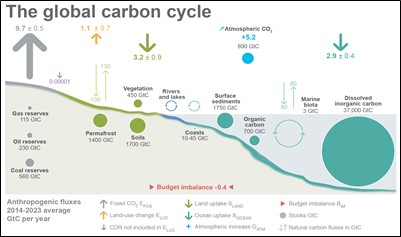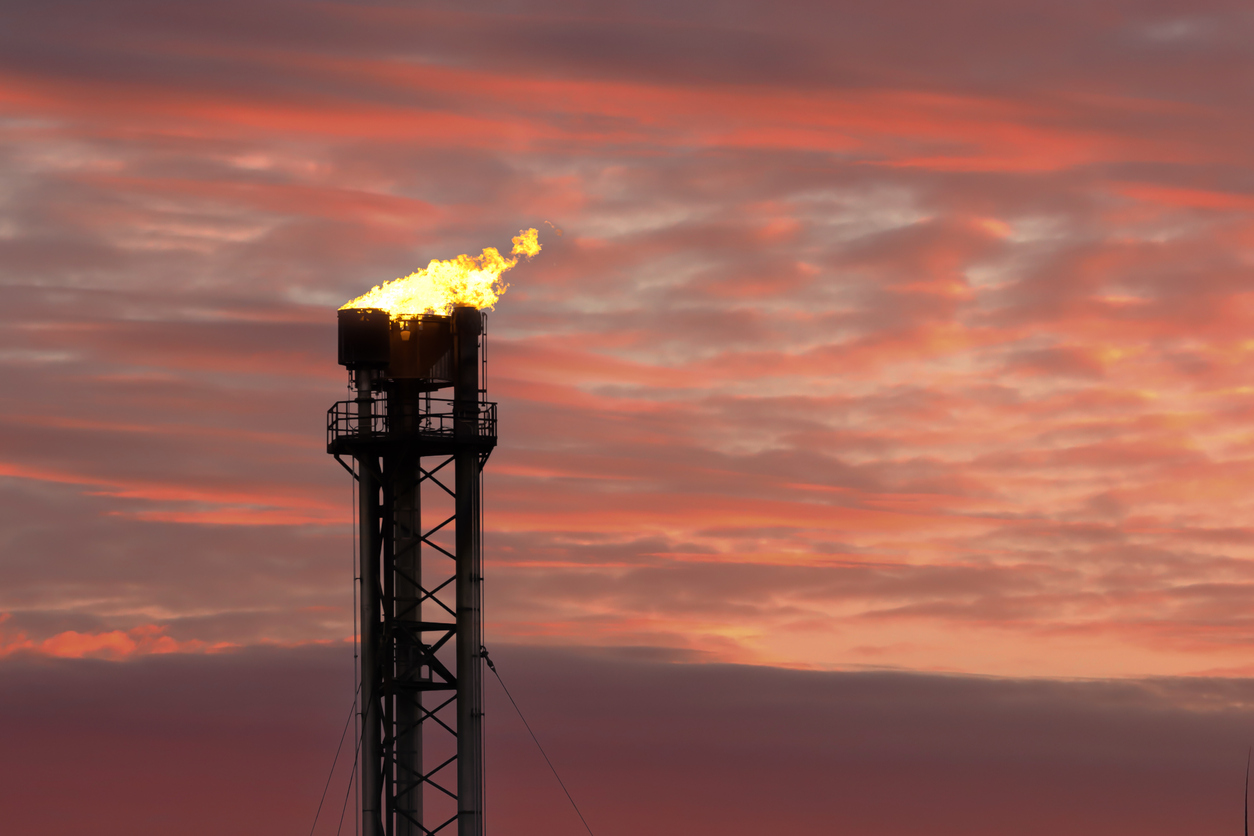
Carbon Dioxide and other GHGs
Carbon Dioxide
Carbon dioxide (CO2) plays a crucial role in regulating our planet’s temperature. As a greenhouse gas, CO2 absorbs and emits energy, thereby contributing to the natural “greenhouse effect” that keeps our planet warm enough to support life.
Human activities, primarily the burning of fossil fuels, have significantly increased atmospheric CO2 levels, leading to global warming and climate change.
By analysing satellite observations of atmospheric CO2, NCEO researchers track where on Earth (and how much) CO2 is being emitted and absorbed, which helps to explain observed changes in the annual growth rate of atmospheric CO2. The data contributes to programmes such as the Global Carbon Budget. This information is crucial for policymakers, researchers, and the public to make informed decisions about climate change adaptation and mitigation strategies.

Air Quality
At NCEO we aim to improve air quality forecasting and examine the impact pollutants have on the climate.
NCEO scientists are studying air pollution and how emissions from the land surface interact with atmospheric circulation and chemistry to help understand their effect on climate and to improve air quality forecasts for the UK.
We have created new data products and analysis tools for monitoring atmospheric pollution and emissions.
At NCEO, our current work includes:
Ozone
- NCEO Leeds are taking an integrated approach to satellite observations to map trace gases and aerosols in the troposphere and lower stratosphere;
- Examining the global distribution and processes that determine concentrations of tropospheric ozone – an important greenhouse gas and toxic pollutant when it is near the ground – as well as other atmospheric trace gases. This has been identified as a high-priority research area by the Intergovernmental Panel on Climate Change.
- Contributing to the World Meteorological Organization’s assessments of ozone depletion in the stratosphere, using satellite and ground-based observations and global modelling of atmospheric circulation. Our recent analyses confirm that the ozone layer is in much better shape than it would have been without the UN treaty.
Carbon Monoxide
At NCEO Leicester we specialise in the retrieval, validation and exploitation of carbon monoxide and other reactive trace gases which are linked to wildfire emissions. Data are produced from satellite records such IASI, which span over the last 15 years, making these data suitable for trend analysis.
Nitrus Oxide
- At NCEO Leeds we are working with the UK Met Office using measurements of pollutants such as nitrogen dioxide to examine how large-scale weather systems affect air quality. This work at NCEO has led to improvements in the Met Office model used to forecast daily air quality in the UK.
- Working with the UK Met Office using measurements of pollutants such as nitrogen dioxide to examine how large-scale weather systems affect air quality. This work at NCEO has led to improvements in the Met Office model used to forecast daily air quality in the UK.
Wildfires
- Exploiting data from geostationary satellites to develop the Fire Radiative Power datasets, from which fires burning across whole continents can be mapped and their emissions to the atmosphere quantified in almost real-time.
- NCEO has developed a series of global fire detection and FRP characterization systems, and the system based on Meteosat Second Generation has been used operationally to provide information on landscape fires burning across Europe and Africa for more than a decade, attracting thousands of users from government agencies, scientific organizations, and decision-makers such as those involved in fire response and air quality forecasting.

Search datasets and tools
NCEO produces various datasets related to climate change, including measurements of greenhouse gases, atmospheric composition, land surface changes and ocean health. These datasets are valuable for understanding the dynamics of climate change on a global scale and informing policies and actions to address it.







